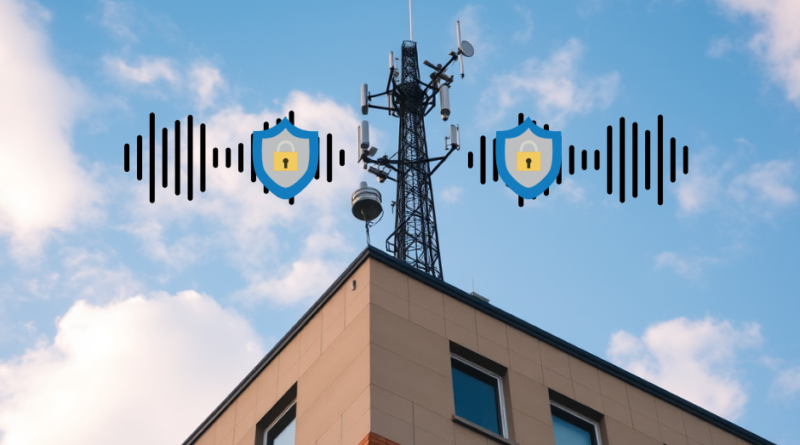SS7 And GSM Cybersecurity: Vulnerabilities, Threats, And Protection Strategies
When it comes to GSM (Global System for Mobile Communications) and SS7 (Signaling System 7), GSM cybersecurity is very important because these old phone systems are broken.
When it was created in the late 1970s and early 1980s, SS7 was made for a secure setting where safety wasn’t the most important thing. Since this is the case, it has major flaws that can be used for bad things like data theft, spying, and watching people’s locations.
Common SS7 Vulnerabilities And Security Threats
Common Security Flaws:

- Data theft: Criminals can listen to calls and texts to get private information without permission.
- Location Tracking: Attackers can use SS7 to find out where mobile users are without their permission.
- Fraud: Attackers can divert two-factor authentication codes and make deals that aren’t supposed to happen by taking advantage of SS7 flaws.
- Denial of Service (DoS): Attackers can stop services from working by sending too many requests to the network at once.
Kinds Of Attacks:
- Eavesdropping: Is the act of listening in on voice calls and text messages without permission.
- Location Tracking: Using SS7’s features to find out exactly where users are.
- Call redirection: Means changing the route of a call to send calls to people who aren’t supposed to receive the call.
- Fraudulent Transactions: Getting into banking information by stealing verification codes is an example of fraud.
Effective Strategies To Mitigate SS7 Cybersecurity Risks

To fix these security holes, mobile network providers (MNOs) need to put in place strong security measures, such as:
- Signaling Firewalls: Enabling firewalls that are made to watch and screen SS7 data can help find and stop bad activities.
- Traffic Analysis: Looking for strange trends in signaling traffic all the time can help find possible threats.
- Access Control: To stop illegal use, it is important to restrict access to the SS7 network through strict login procedures.
- Education and Training: It is important for successful incident reaction that telecom staff are more aware of SS7 vulnerabilities and attack routes.
For more information we suggest checking the complete Mobile Threat Catalogue from NIST, to deepen on SS7 Cybersecurity knowledge.
Future Of GSM Cybersecurity: 4G, 5G, And SS7
As mobile networks move toward 4G and 5G technologies, which use safer protocols like Diameter, the leftover problems with SS7 are still a worry because of the continued use of older networks. The GSMA says that a lot of mobile connections are still on 2G and 3G networks.
This means that they can be attacked with SS7 as long as these networks are in use. It is hoped that adding new security features to modern networks, like the Security Edge Protection Proxy (SEPP) in 5G, will make them safer from signaling threats.
On the other hand, keeping all versions of mobile technology safe takes constant monitoring and changes as criminals get smarter. In conclusion, while improvements in telecommunications technology have led to better security systems, the fact that protocols like SS7 are still in use means that cybersecurity measures must be kept up to date to protect users and keep trust in mobile communications.
How To Secure Your Mobile Network from SS7 Attacks:

If you want to protect yourself from SS7 protocol security flaws and make your phone calls more private without having to know a lot about technology, take these simple steps:
Use Apps For Encrypted Communication
Choose Safe Apps: If you want to text or call someone, use a message or talking app that encrypts the whole conversation, like Signal, or Telegram.
These apps make sure that only you and the person you’re talking to can read or listen to your chats. This makes it much less likely that someone will listen in on you (please keep in mind that law enforcement may always circumvent these security protocols).
Turn On The Features For Blocking And Screening Calls
Use call screening: A lot of smartphones have call screening tools that can help you find spam or annoying calls. For example, Google’s Call Screen tool and True Caller lets you see who is calling and why before you answer, which can help you avoid scams.
Block Unknown Numbers: Be careful when taking calls from numbers you don’t know. Do not answer the phone if it is someone you do not know. Let the call go to voicemail first.
Update Your Device Often.
Keep Software Up-to-Date: Make sure the operating system and apps on your phone are always the latest versions. When you get regular updates, they often come with security changes that fix known bugs.
Use Strong Methods Of Authentication.
Two-Factor Authentication (2FA): For accounts that have access to private data, 2FA needs to be turned on. In addition to your password, this requires a second form of proof, which makes it even safer, but you have to keep into account that SMS can be rerouted as SS7 cyberattacks can do that, so an app like Google Authenticator may be a better alternative.
Don’t Use Public Wi-Fi For Important Calls.
If you need to make an important call, don’t use a public Wi-Fi network. Instead, use your cell phone’s data plan. To protect your internet connection, you should either use your phone’s data plan or a reputable VPN service such as Proton VPN.
Watch Out For Personal Information
Don’t share too much information: Watch out for the private details you give over the phone. If someone calls and asks for private information, make sure they are who they say they are before giving it out.
So for example before confirming you are the person they are requesting to talk to, make sure to ask first who’s calling or from which company they are calling and for what purpose, then if it sounds right, then you can confirm that you are the person they are looking for.
Learn About How To Protect Your Privacy.
Stick to the facts: Learn basic privacy rules and be aware of common tricks crooks and attackers use. Knowing these things can help you spot strange behavior during conversations.
Be aware that when you are on the streets or surrounded by unknown people you should not speak about any sensitive topic or disclose any relevant information such as financial information or disclose any kind of PII (personally identifiable information).
Even people who aren’t very good with technology can improve their privacy and safety during phone calls by taking these simple steps. This successfully lowers the risks that come with SS7 flaws.
